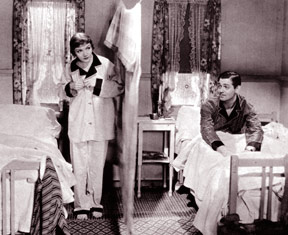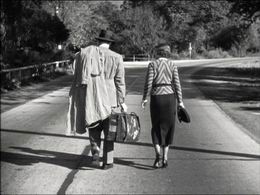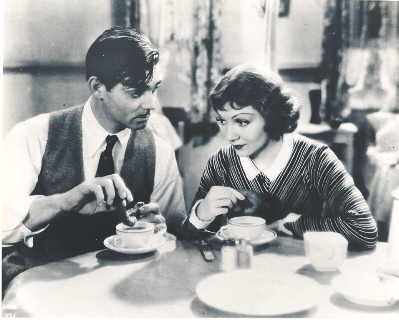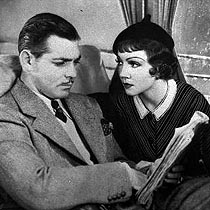 |
|
|---|---|
There are three main character archetypes in IHON. The first is the rich heiress, Ellen Andrews, who is running away for love. Now, what she really wants is freedom, companionship, and a chance to see something of the world. Her search for freedom is evident in both her action of running away and in her relationship with King Westley. In many ways her desire to see more than what her upbringing has allowed is similar to this search for freedom, and may in fact be the same impulse. She further shows this emotion when she tells Peter Warne that she would rather have been a plumber's daughter and free than a banker's daughter and sheltered. It is our opinion that the ebullience she shows in the first inn is in part a reaction to her joy at being able to travel as a normal person. As Laina says, the whole 'sense of adventure' thing. Her quest for companionship is what leads her to ditch King Westley for Peter Warne. In the course of their travels Peter and Ellie become 'buddies' doing things together as a team. The first example of this is of course when the detectives come and they put on the act of a middle class married couple arguing. Other examples include helping the stunned lady and hitching a ride. It is our opinion that her relationship with King Westley was her jumping at the first opportunity to get out from under her father's shadow. She realized in her travels with Peter that she had made a mistake jumping at the first man, so in the end she makes the correct decision to go with Peter. Ellen, and Peter who we discuss next, are the most rounded characters we see. Ellie shows this roundness in how she organizes her priorities and comes to decide that being with Peter is the most important one.
The next character that needs to be discussed is Peter Warne. He is a recently fired reporter who has had problems with alcohol which led to his being fired. In many ways he is a man of the world, he shows this in all the things that he's going to 'write a book about'. He meets Ellie on the bus to New York and, recognizing her, decides to become a kind of protector because of her naïveté. She initially tries to rebuff him, but eventually she realizes that he will give her the freedom and opportunity to experience new things that she craves while still guiding her to her alleged goal of New York. His method of guiding her includes a lot of sarcastic ridicule, especially of her elevated station and the naivete that goes with it. He also though, through the same events as stated for her above, comes to savor her companionship. This leads to his attempt to marry her, which given his opinion that he cannot propose without money, leads to the complication at the end of the film. His sarcastic attitude is also very clear in his reaction to Mr. Andrews' repeated question 'Do you love her?' He goes on about how one would have to be crazy to stand being around her, before finally admitting that he does love her and is a little bit crazy. This craziness is also somewhat similar to the 'sense of adventure' that Laina mentioned earlier for Ellie. As stated above he is rounded, his motivations for helping Ellie are numerous and changing. He wants to use her to get his reporting job back, to get money and eventually he wants to marry her. He also is motivated by a sense of chivalry. It is very difficult to decide which is the comic hero and which is the blocking figure as Peter and Ellie seem to trade these roles throughout the film. Which fills which role also can depend on from whose viewpoint you as a viewer chose to watch, as it is easy to place yourself in either person's shoes.
The father, Alexander Andrews, is a character that comes, through his daughter's running away, to the realization that he has to let her out a little. At first, this makes him accept, grudgingly, King Westley as his son-in-law. When he realizes that there is another way to let his daughter have the freedom she needs without King Westley, he immediately acts to cause it to happen, both by forcing Peter to admit he loves Ellie, and by telling Ellie that Peter actually loves her and wasn't after the money. This realization, in this case that his daughter needed to be let go, is an important dramatic character motif in parent figures. He is more rounded than any other supporting figure we have seen in that he comes to realize that he can let his daughter have her own life and not lose her.
The role of blocking character can be said to be played by almost every male character in the film at one time or another. Shapely, Westley and Mr. Andrews are the most prominent fillers of this role, but Peter does fulfill a pseudo-blocking role for a time in the ending sequence. As stated above, if you consider Peter and not Ellie as the comic hero, Ellie fills a blocking role, as well as others such as Westley, in their attempts to keep Peter and her apart. However the complexities and roundness of the characters in It Happened One Night make these classifications much more difficult than in the plays with flater characters. |
|
Click on Pics for original site |
|
For questions or comments, please contact John Gruber-Miller |
|




